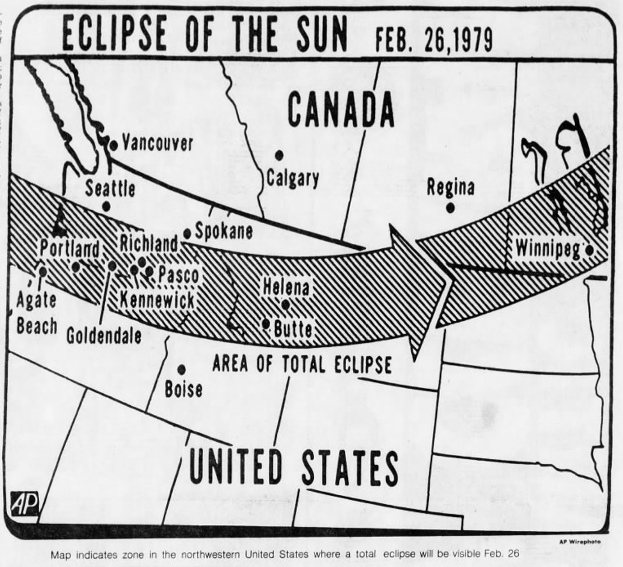Treasures of the Archives: Minutes and Meeting Records: The Eclipse

On Monday August 21st, 2017 the moon will pass between the sun and the earth casting a wide shadow over parts of the contiguous United States for the first time in nearly four decades. Skywatchers and armchair astronomers in the Pacific Northwest and beyond will flock to central Oregon in hopes that Mother Nature will offer a clear sky to enjoy the once-in-a-lifetime astronomical event.
This is not the first time that the Pacific Northwest has fallen in the path of totality. In 1979, a total solar eclipse swept across Washington, Oregon, Idaho, Montana, and North Dakota before proceeding into Canada. The event, billed as the country’s final total eclipse of the century, generated a “solar mania” comparable to today’s excitement. Such events can often be explored in the Minutes and Meeting Records Collection at the Washington State Archives, Digital Archives. This collection is made up of official accounts of meetings conducted by over two hundred local government agencies from the 1850s to the present. They are a running record of the most important business conducted by an agency. The records are completely keyword searchable and they provide a window into the challenges of the eclipse in 1979.
Unlike this year’s eclipse, the one in 1979 occurred in February well before children got out of school for the summer. The records show that at least five school districts in the state had educators and administrators that were worried about the possibility of students damaging their eyes while trying to watch the solar eclipse on their way to school. The concerns were raised in public meetings, and in the Vancouver School District an ophthalmologist was consulted to guide an action plan. Most school districts instructed teachers to educate their students about the risks of looking at the sun and agreed upon different start times to ensure that students were not walking to school when the event occurred—a practical local-level response to the eclipse.
This is not an earth-shattering discovery shedding light on the long duree history of human responses to eclipses, but it is an interesting bit that fills in our understanding of how communities reacted to previous eclipse events.
Written by Logan Camporeale

